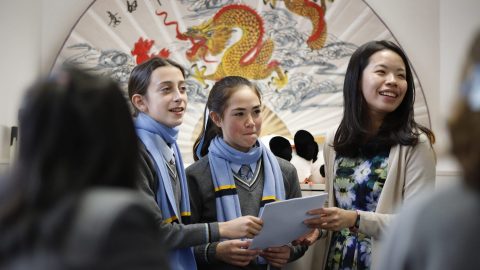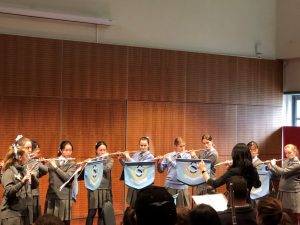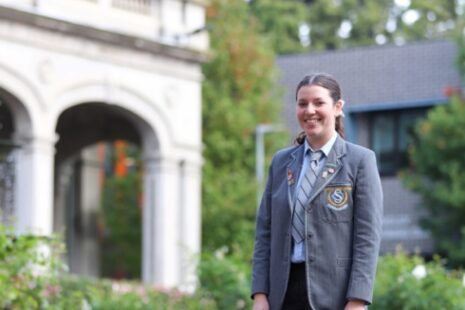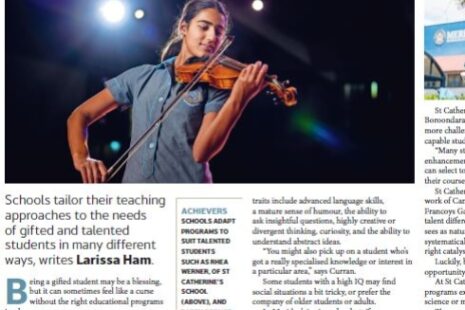Learn a Language Like a Musical Instrument

As a learner, I have had the experience of learning Chinese Mandarin as my first language, then learning English as my second. I later learnt French and Japanese as additional languages. I, therefore, have much experience in learning new languages in a foreign context. Music is another area that I have much experience in. I began learning music in kindergarten, and commenced learning the flute in school and continued into my university years. People have often praised my pronunciation of a language and attributed it to my ‘good ear’ as a musician, however, it was not until I became a teacher of both Music and Chinese that I realised the correlation between the two are much more than sensitivity to sound.
Both music and use of language have the same goal: to communicate and express their ideas to an audience in the most effective way. A composer expresses themselves in musical notes on a page while an author communicates through words. A performer needs to spend much time learning and decoding the notes to best interpret the composer’s ideas through music; while a speaker needs to work on expressing ideas using the best choice of vocabulary and speech patterns. Consequently, many of the processes for learning music and language are similar.

The process of learning to play a new passage of music by ear is very similar to learning to speak a new language.
The process of learning to play a new passage of music by ear is very similar to learning to speak a new language. One starts by listening to the target which may involve analysis of the passage, thinking about the structure and the way it is expressed. The next step is to imitate, which is heavily reliant on the ability to recall and reproduce.
Unfortunately, it is at this step that many learners cease the learning process. Their result may lead them to make one of the following assessments: ‘It is too hard; I cannot do it’, ‘It is easy; I can do it’ or ‘It is close enough’. However, a great learner of music or language would proceed to the next step which is to diagnose their errors based on their imitation result. This step is crucial in becoming better than average in their craft. If one can identify their own mistakes, then they can advance to the next step of finding ways to rectify their errors. During this step, the teacher can provide more assistance if the learner is unable to find a solution. However, if a learner has advanced to this stage independently, success is almost guaranteed.
The final step is repetition. The learner undertakes this step until they have fully grasped the skill and is ready for the next challenge, at which point, the cycle starts again. In addition to a positive learning cycle, learners can boost their learning by increasing their exposure to the target language or music. Any form of exposure, visual or audio, through books, films, TV, radio, concerts, conversations, podcasts and recordings, would have immense benefits to the learner. Extensive exposure would train the brain to be more accustomed to this new skill, whether it is music or language, and increase one’s sensitivity towards it. It would assist the learner in diagnosing their own errors for rectification. Correct repetition is also important, as ‘practice makes permanent’. Repetition of the correct material would be highly beneficial; however, repetition of the incorrect material would result in habitual errors. It is, therefore, important to ensure that the material is correct before repetition.
Learning music and language still have their own unique challenges that cannot be related to anything else. However, as a start, it may be less daunting for some to study a new instrument or a new language if you have already learnt one and are aware that the learning process can be translated into different contexts. For learners of both, it may be helpful to know that you are strengthening your skills through the same processes. For others, it is never too late to learn a new skill.





